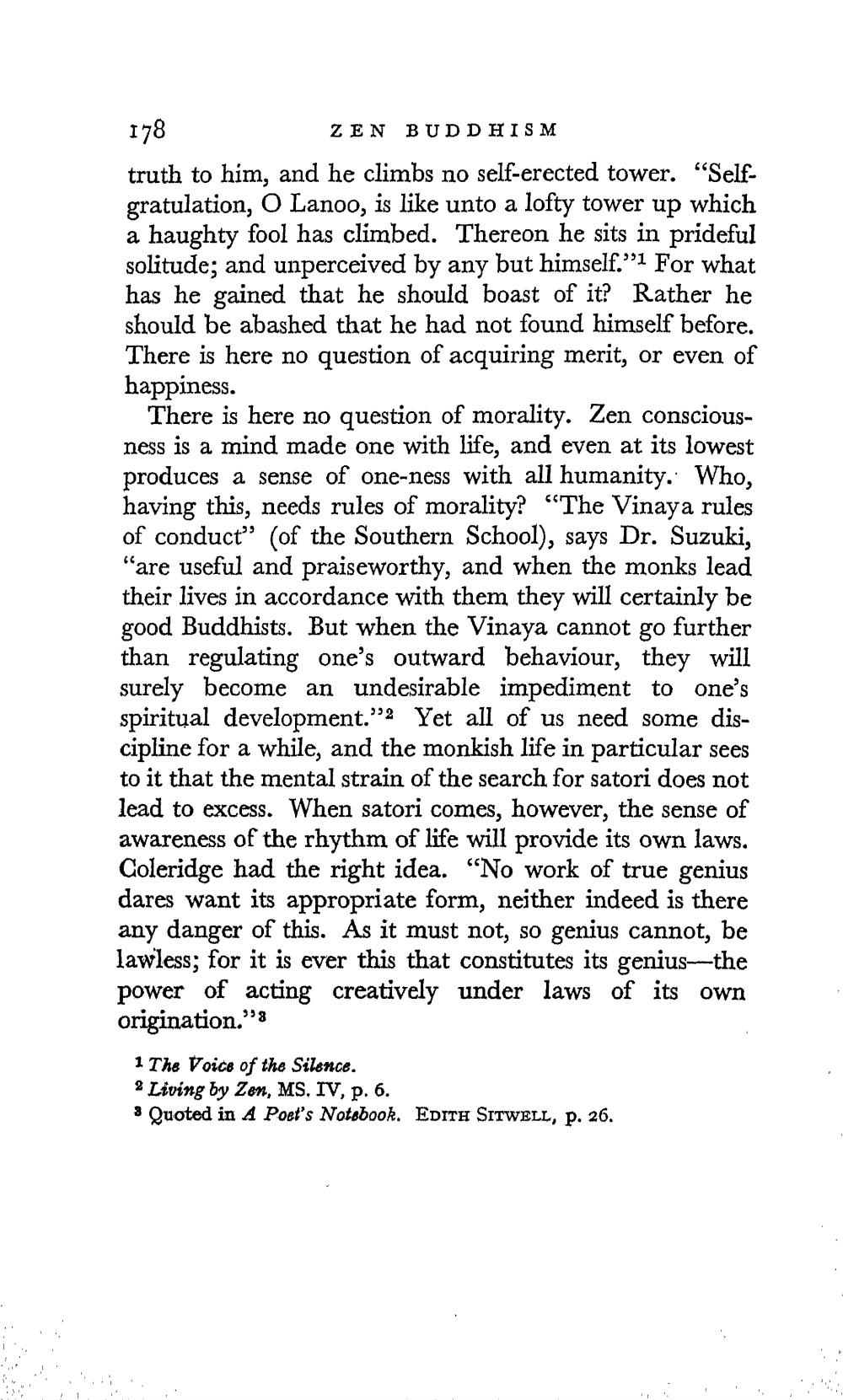________________
178
ZEN BUDDHISM truth to him, and he climbs no self-erected tower. “Selfgratulation, O Lanoo, is like unto a lofty tower up which a haughty fool has climbed. Thereon he sits in prideful solitude; and unperceived by any but himself.”1 For what has he gained that he should boast of it? Rather he should be abashed that he had not found himself before. There is here no question of acquiring merit, or even of happiness.
There is here no question of morality. Zen consciousness is a mind made one with life, and even at its lowest produces a sense of one-ness with all humanity. Who, having this, needs rules of morality? “The Vinaya rules of conduct" (of the Southern School), says Dr. Suzuki, "are useful and praiseworthy, and when the monks lead their lives in accordance with them they will certainly be good Buddhists. But when the Vinaya cannot go further than regulating one's outward behaviour, they will surely become an undesirable impediment to one's spiritual development."2 Yet all of us need some discipline for a while, and the monkish life in particular sees to it that the mental strain of the search for satori does not lead to excess. When satori comes, however, the sense of awareness of the rhythm of life will provide its own laws. Coleridge had the right idea. “No work of true genius dares want its appropriate form, neither indeed is there any danger of this. As it must not, so genius cannot, be lawless; for it is ever this that constitutes its genius the power of acting creatively under laws of its own origination."
1 The Voice of the Silence. 2 Living by Zen, MS. IV, p. 6. 3 Quoted in A Poet's Notebook. EDITH SITWELL, P. 26.




